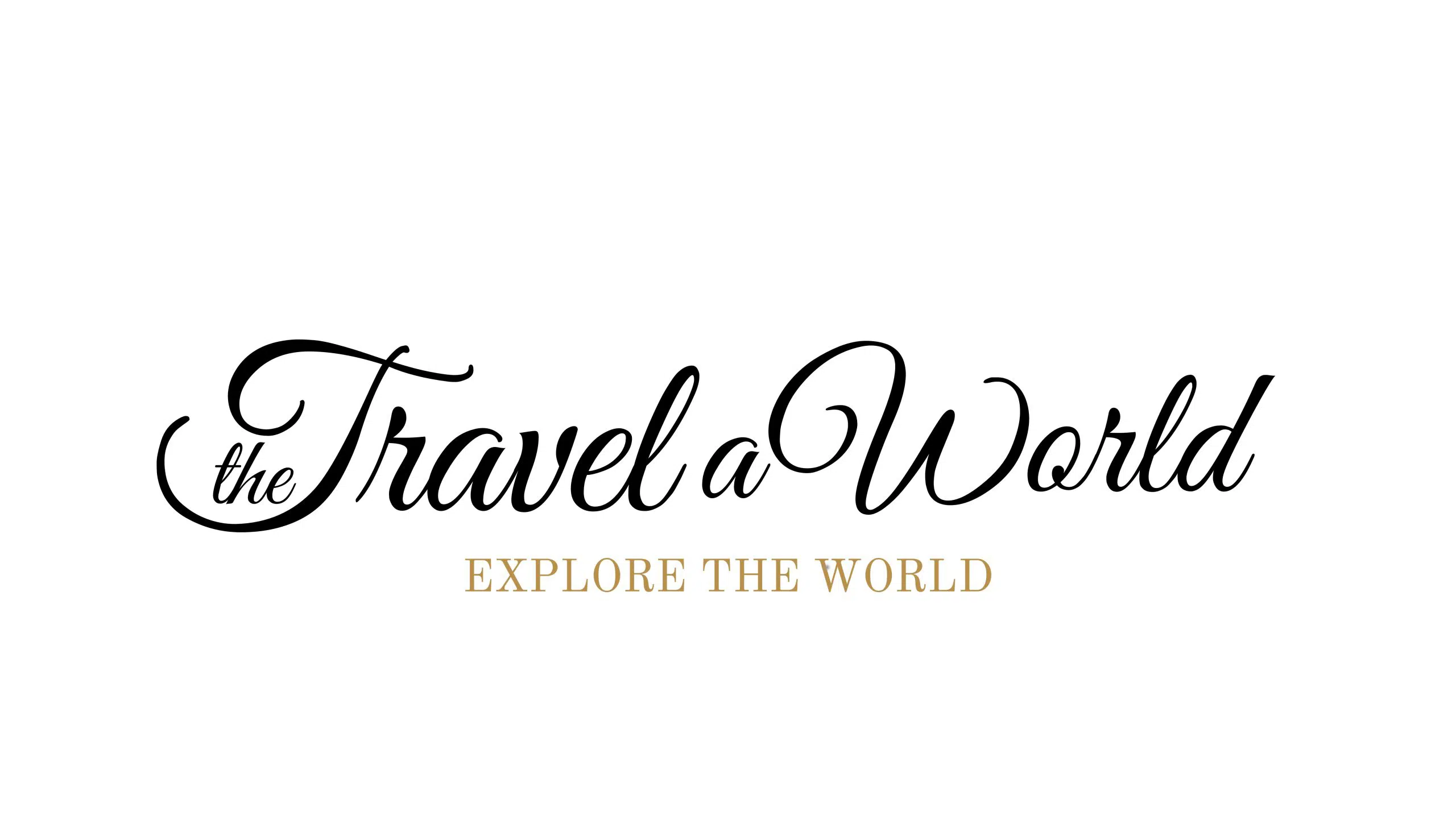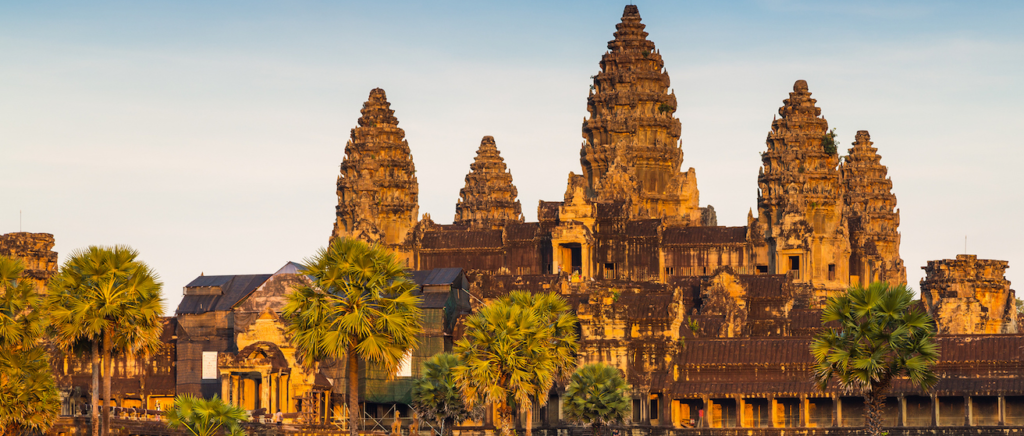
Cambodia trip Embark on a journey of discovery and enchantment with our comprehensive Cambodia trip guide. Explore the majestic temples of Angkor Wat, immerse yourself in the vibrant culture of Phnom Penh, and unwind on the pristine beaches of Sihanoukville. From ancient ruins to bustling markets, Cambodia offers a wealth of experiences for every traveler. Whether you’re seeking adventure, relaxation, or cultural immersion, our guide provides valuable insights and tips to help you make the most of your Cambodian adventure. With detailed information on destinations, activities, practical tips, and cultural etiquette, you’ll be well-prepared to create memories that will last a lifetime in the Kingdom of Wonder.
Table of Contents
A. Overview of Cambodia trip:
Cambodia, nestled in the heart of Southeast Asia, is a land of rich cultural heritage, breathtaking landscapes, and a turbulent history. Bordered by Thailand, Laos, and Vietnam, Cambodia is renowned for its magnificent temples, vibrant cities, and warm hospitality. The country’s diverse geography encompasses lush jungles, serene rice paddies, and idyllic coastline, offering a myriad of experiences for travelers.
Home to the iconic Angkor Wat, a UNESCO World Heritage site and one of the largest religious monuments in the world, Cambodia’s ancient temples stand as a testament to its glorious past. Beyond its architectural wonders, Cambodia boasts bustling markets, delicious cuisine, and a resilient spirit that captivates visitors from around the globe.
B. Purpose of the Trip:
The purpose of this trip to Cambodia is multifaceted, blending exploration, cultural immersion, and personal enrichment. Firstly, it seeks to delve into the rich tapestry of Cambodian history and culture, uncovering the stories etched in its ancient temples, vibrant cities, and rural landscapes.
Moreover, this journey aims to foster a deeper understanding of Cambodia’s past and present, shedding light on the country’s complex history, including its struggles and triumphs. By visiting historical sites such as the Killing Fields and the Royal Palace in Phnom Penh, travelers can gain insights into Cambodia’s journey towards reconciliation and development.
Beyond cultural exploration, this trip also serves as an opportunity for adventure and relaxation. From exploring the mystical ruins of Angkor Wat to lounging on the pristine beaches of Sihanoukville, travelers can immerse themselves in the natural beauty and tranquility of Cambodia.
Furthermore, this journey is fueled by a desire for personal growth and connection. Through interactions with local communities, participation in cultural activities, and moments of reflection, travelers can forge meaningful connections and cultivate a deeper appreciation for the world around them.
Ultimately, the purpose of this trip to Cambodia is not only to visit its famed landmarks and natural wonders but also to embark on a transformative journey of discovery, understanding, and connection. It is a chance to explore a land steeped in history, culture, and beauty, and to create memories that will last a lifetime.
Pre-Trip Planning Cambodian
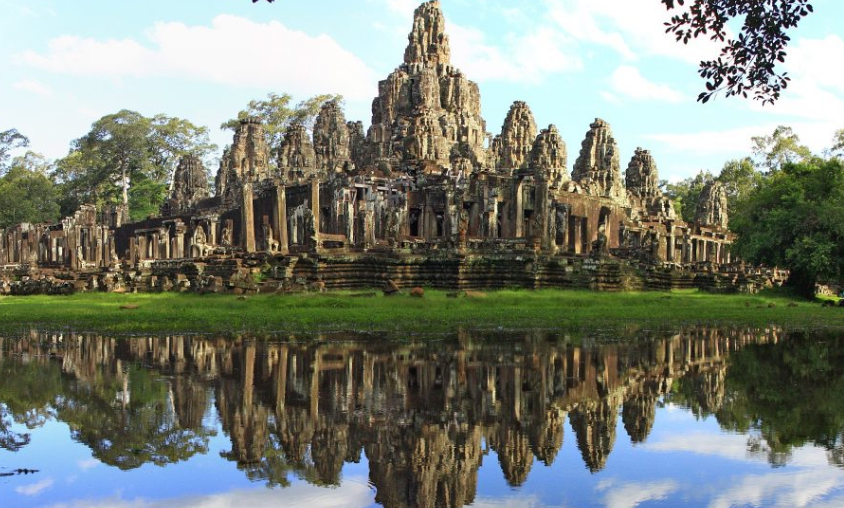
Embark on your Cambodian adventure fully prepared with our comprehensive pre-trip planning guide. From essential research and budgeting tips to obtaining necessary travel documents and booking accommodations and transportation, we’ve got you covered every step of the way. Dive into the rich culture and history of Cambodia with insights into local customs and etiquette, ensuring a smooth and respectful travel experience. With practical advice on health and safety precautions, as well as packing essentials, you’ll be equipped to navigate Cambodia with confidence and ease. Get ready to make the most of your journey with our pre-trip planning guide and set the stage for an unforgettable adventure in the Kingdom of Wonder.
A. Research and Information Gathering:
Before embarking on a journey to Cambodia, thorough research and information gathering are essential to ensure a smooth and fulfilling travel experience. Travelers should research various aspects of Cambodia, including its culture, customs, weather, attractions, and safety considerations. Online travel guides, blogs, and forums can provide valuable insights and recommendations from fellow travelers. Additionally, learning basic Khmer phrases can enhance communication and foster connections with locals.
B. Setting a Budget:
Setting a realistic budget is crucial for planning a successful trip to Cambodia. Travelers should consider expenses such as airfare, accommodation, transportation, meals, activities, and souvenirs. Researching average costs for accommodation, food, and transportation in Cambodia can help travelers estimate their expenses more accurately. It’s also important to budget for unexpected expenses and emergencies to ensure financial peace of mind during the trip.
C. Obtaining Necessary Travel Documents:
Obtaining the necessary travel documents is a fundamental step in preparing for a trip to Cambodia. Most travelers will need a valid passport with at least six months’ validity from the date of entry. Additionally, depending on their nationality, travelers may need to obtain a tourist visa to enter Cambodia. Tourist visas can typically be obtained upon arrival at major airports and land border crossings, or in advance through Cambodian embassies or online visa services. Travelers should also check if any additional permits or vaccinations are required for their trip.
D. Booking Accommodations and Transportation:
Booking accommodations and transportation in advance can help travelers secure the best deals and ensure availability, especially during peak travel seasons. Cambodia offers a wide range of accommodation options, including budget hostels, boutique hotels, and luxury resorts. Travelers should research and book accommodations that suit their preferences, budget, and desired locations. Similarly, arranging transportation within Cambodia, such as flights, buses, or private transfers, in advance can streamline travel logistics and minimize stress during the trip. Online booking platforms and travel agencies are valuable resources for finding and booking accommodations and transportation in Cambodia.
Destinations and Activities
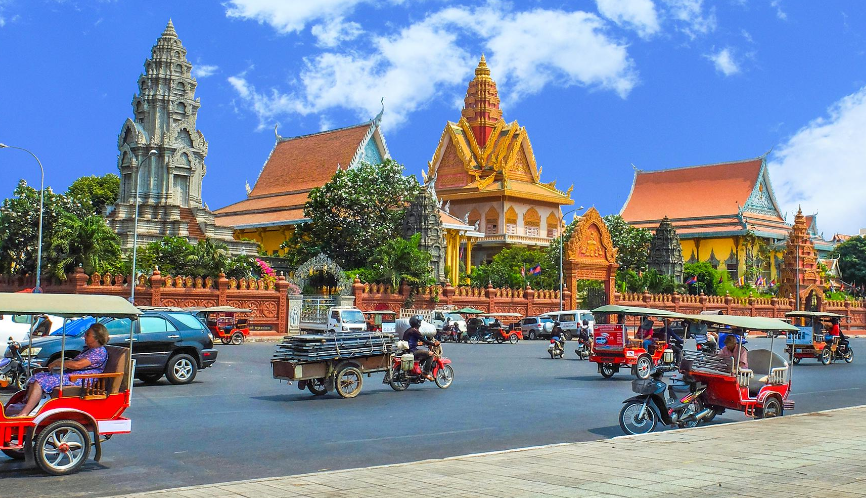
Cambodia Tour Unveil the wonders of Cambodia with our guide to the country’s most captivating destinations and exciting activities. From exploring the majestic temples of Angkor Wat to delving into the rich history of Phnom Penh, our curated selection promises an immersive journey through the heart of Southeast Asia. Dive into the ancient ruins of Angkor Thom, wander through bustling markets, and witness the vibrant culture come to life through traditional Apsara dance performances. Whether you’re seeking cultural enrichment, historical exploration, or simply awe-inspiring landscapes, Cambodia offers endless opportunities for discovery and adventure. Join us on a voyage of exploration and create unforgettable memories in the Land of Smiles.
A. Exploring the Capital City, Phnom Penh:
Visit to the Royal Palace: Embark on a journey through Cambodia’s royal heritage with a visit to the majestic Royal Palace in Phnom Penh. Admire the intricate Khmer architecture, ornate decorations, and serene courtyards as you explore the official residence of the King of Cambodia.
Exploring the National Museum of Cambodia: Delve into Cambodia’s rich cultural heritage at the National Museum of Cambodia, home to a vast collection of Khmer art, artifacts, and sculptures. Marvel at ancient relics dating back to the Angkorian era and gain insights into Cambodia’s artistic and archaeological treasures.
Learning about Cambodia’s History at the Killing Fields: Pay homage to the victims of Cambodia’s tragic past with a visit to the Killing Fields, a poignant memorial to the victims of the Khmer Rouge regime. Wander through the peaceful countryside and learn about Cambodia’s turbulent history through exhibits, memorials, and personal accounts, honoring the resilience and spirit of the Cambodian people.
B. Visiting Siem Reap:
Touring the Angkor Wat Temple Complex: Embark on a captivating journey through time with a tour of the iconic Angkor Wat temple complex, a UNESCO World Heritage site and one of the most revered archaeological sites in the world. Marvel at the grandeur of Angkor Wat’s towering spires, intricate bas-reliefs, and sprawling grounds as you explore its ancient temples, galleries, and sanctuaries.
Exploring Angkor Thom and Bayon Temple: Discover the enigmatic beauty of Angkor Thom, the last capital of the Khmer Empire, and its iconic Bayon Temple, renowned for its striking stone faces and intricate carvings. Wander through the ancient ruins, labyrinthine corridors, and towering gateways, immersing yourself in the mystique and grandeur of Cambodia’s past.
Experiencing Local Culture at a Traditional Apsara Dance Performance: Immerse yourself in the enchanting world of Cambodian dance and music with a traditional Apsara dance performance. Witness graceful dancers adorned in elaborate costumes perform ancient rituals, myths, and legends through elegant movements, gestures, and storytelling, offering a glimpse into Cambodia’s rich cultural heritage and artistic traditions.
Practical Tipstrip to Cambodia
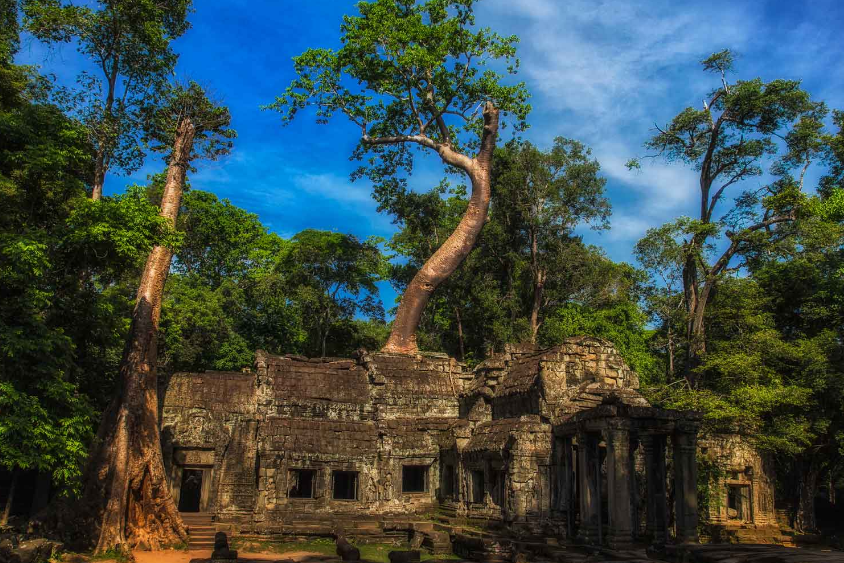
Cambodia Holiday Discover essential tips to ensure a smooth and enjoyable trip to Cambodia. From cultural etiquette and health precautions to packing essentials and transportation options, this guide equips you with the knowledge needed to navigate the vibrant landscapes and rich heritage of Cambodia with confidence and ease. Whether you’re exploring ancient temples in Siem Reap or immersing yourself in the bustling streets of Phnom Penh, these practical tips will help enhance your travel experience and create lasting memories in the Kingdom of Wonder.
A. Cultural Etiquette and Customs:
Understanding and respecting Cambodian culture and customs is essential for a smooth and enjoyable trip. Here are some key points to keep in mind:
Greetings: Cambodians typically greet each other with a slight bow and a pressed-together palms gesture called “sampeah.” Respect for Elders: Cambodian culture places a high value on respect for elders. Always address older individuals with deference and avoid contradicting or challenging them publicly. Temple Etiquette: When visiting temples, dress modestly, covering shoulders and knees. Remove hats and shoes before entering temple buildings, and avoid pointing your feet towards Buddha statues or monks. Social Norms: Public displays of affection are generally frowned upon in Cambodian culture. Avoid loud or boisterous behavior in public places. Gift Giving: If invited to someone’s home, it’s customary to bring a small gift, such as fruit or sweets. Gifts are typically presented and received with both hands. Respect for Monarchy: Cambodians hold their monarchy in high regard. Avoid making derogatory comments about the royal family or engaging in discussions about politics unless invited to do so.
B. Health and Safety Precautions:
Prioritizing health and safety is paramount when traveling in Cambodia. Here are some precautions to consider:
Water and Food Safety: Drink only bottled or boiled water and avoid consuming raw or undercooked foods, particularly from street vendors. Mosquito Protection: Cambodia is prone to mosquito-borne diseases like malaria and dengue fever. Use insect repellent, wear long sleeves and pants, and sleep under mosquito nets, especially in rural areas. Sun Protection: The tropical climate means intense sun exposure. Use sunscreen, wear sunglasses and a hat, and seek shade during peak sun hours. Vaccinations: Ensure routine vaccinations are up-to-date and consider additional vaccinations such as hepatitis A, typhoid, and Japanese encephalitis based on travel plans and medical advice. Traffic Safety: Exercise caution when crossing roads, as traffic can be chaotic. Use designated crosswalks when available, and consider hiring reputable drivers for longer journeys. Medical Care: Familiarize yourself with the location of medical facilities, including hospitals and clinics, in case of emergencies. Purchase comprehensive travel insurance that covers medical expenses and emergency evacuation.
C. Packing Essentials:
Packing efficiently can enhance comfort and convenience during your trip. Consider including the following essentials:
Lightweight Clothing: Pack breathable, lightweight clothing suitable for hot and humid weather. Choose moisture-wicking fabrics and neutral colors to blend in with the local culture. Comfortable Footwear: Bring sturdy, comfortable shoes suitable for walking, as you’ll likely be exploring temples and navigating uneven terrain. Travel Documents: Carry a copy of your passport, visa, travel insurance, and any other important documents. Store digital copies securely on your phone or cloud storage. Personal Hygiene Items: Pack travel-sized toiletries, including hand sanitizer, tissues, and wet wipes, as well as any prescription medications and basic first-aid supplies. Electronics: Bring a universal travel adapter, power bank, and chargers for your electronic devices. Consider a portable Wi-Fi hotspot for staying connected on the go. Travel Accessories: Don’t forget essentials like a lightweight daypack, reusable water bottle, sunglasses, and a compact umbrella or rain jacket for unpredictable weather.
D. Transportation within Cambodia:
Getting around Cambodia offers various options to suit different preferences and budgets:
Tuk-Tuks: These ubiquitous three-wheeled vehicles are a popular and affordable mode of transportation for short distances within cities. Negotiate fares in advance. Taxis: Metered taxis are available in major cities like Phnom Penh and Siem Reap. Opt for reputable taxi companies or use ride-hailing apps for convenience. Buses: Cambodia has an extensive network of intercity buses, ranging from budget to luxury options. Book tickets in advance for long-distance journeys. Motorbike Taxis: Known as “motodops,” these drivers offer rides on motorbikes and are a convenient way to navigate traffic and reach destinations quickly, especially in urban areas. Rental Cars: While less common, rental cars are available in major cities for travelers who prefer the flexibility of self-driving. Ensure you have a valid international driver’s license and insurance coverage. Before traveling, research transportation options and plan your routes accordingly to optimize your time and travel experience in Cambodia.
| Section | Subsection |
| Overview of Cambodia | – Introduction to Cambodia’s geography and landmarks |
| – Description of Cambodia’s cultural richness and history | |
| Purpose of the Trip | – Multifaceted goals: exploration, cultural immersion, personal growth |
| – Specific objectives: understanding history, adventure, relaxation | |
| Pre-Trip Planning | – Research and Information Gathering |
| – Setting a Budget | |
| – Obtaining Necessary Travel Documents | |
| – Booking Accommodations and Transportation | |
| Destinations and Activities | – Exploring the Capital City, Phnom Penh |
| – Visiting Siem Reap | |
| – Experiencing Local Culture at a Traditional Apsara Dance Performance | |
| Practical Tips | – Cultural Etiquette and Customs |
| – Health and Safety Precautions | |
| – Packing Essentials | |
| – Transportation within Cambodia |
Embarking on a journey to Cambodia offers a tapestry of experiences, from exploring ancient temples to immersing oneself in vibrant local culture and relaxing on pristine beaches. With its rich history, diverse landscapes, and warm hospitality, Cambodia beckons travelers seeking adventure, cultural exploration, and personal enrichment. Whether wandering through the majestic ruins of Angkor Wat, paying respects at the Killing Fields, or indulging in traditional Apsara dance performances, visitors are bound to create lasting memories in the Kingdom of Wonder. By following practical tips and cultural etiquette, prioritizing health and safety, and planning ahead, travelers can make the most of their Cambodian adventure and return home with a deeper understanding and appreciation of this captivating destination.
FAQs:
- Is Cambodia safe for travelers?
- Generally, Cambodia is a safe destination for travelers, but like any other country, it’s important to exercise caution, especially in crowded areas and at night. Be mindful of your belongings, follow local laws and customs, and stay informed about any potential risks or safety concerns.
- What is the best time to visit Cambodia?
- The best time to visit Cambodia is during the dry season, which typically runs from November to April. This period offers pleasant weather, making it ideal for exploring temples and outdoor activities. However, it’s also the peak tourist season, so expect larger crowds and higher prices. The wet season, from May to October, brings rain showers but also lush landscapes and fewer tourists.
- What should I wear when visiting temples in Cambodia?
- When visiting temples in Cambodia, it’s important to dress modestly out of respect for religious and cultural traditions. Wear clothing that covers your shoulders and knees, and remove hats and shoes before entering temple buildings. Loose, breathable fabrics are recommended to stay comfortable in the tropical climate.
- Do I need to tip in Cambodia?
- Tipping is not customary in Cambodia, but it is appreciated, especially in the service industry. In restaurants, rounding up the bill or leaving a small tip is common if the service was satisfactory. Tipping tour guides, drivers, and hotel staff for exceptional service is also appreciated but not obligatory.
- What are the must-visit destinations in Cambodia?
- Some of the must-visit destinations in Cambodia include Angkor Wat and the surrounding temple complex in Siem Reap, the capital city of Phnom Penh with its historical sites and cultural attractions, and the coastal town of Sihanoukville for its beautiful beaches and island getaways.
.

